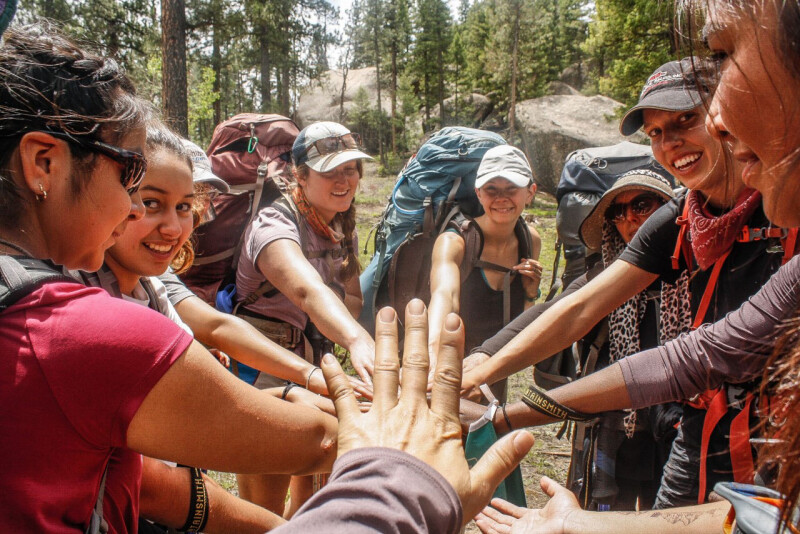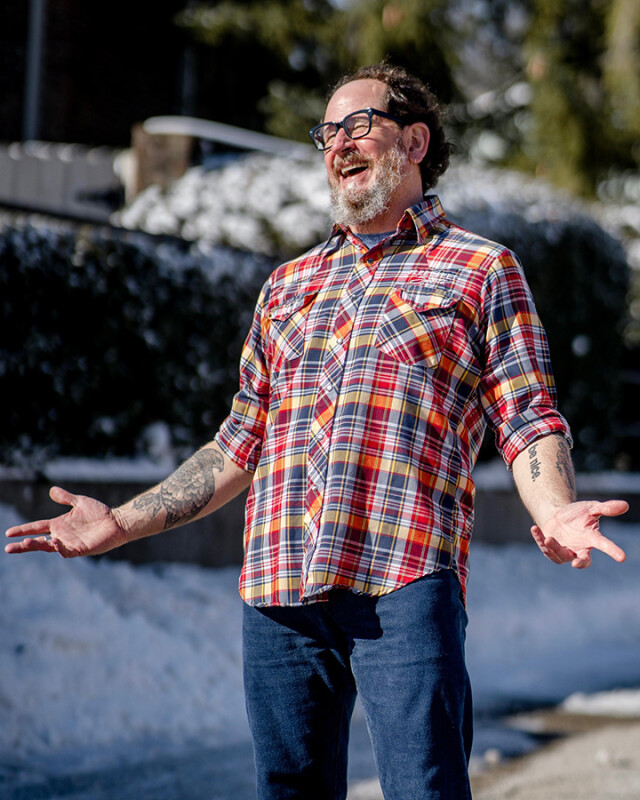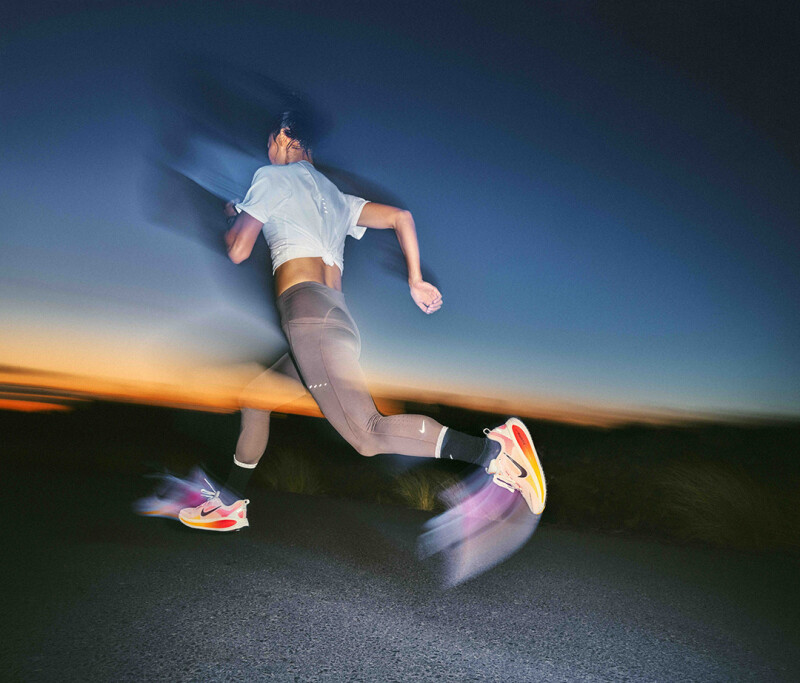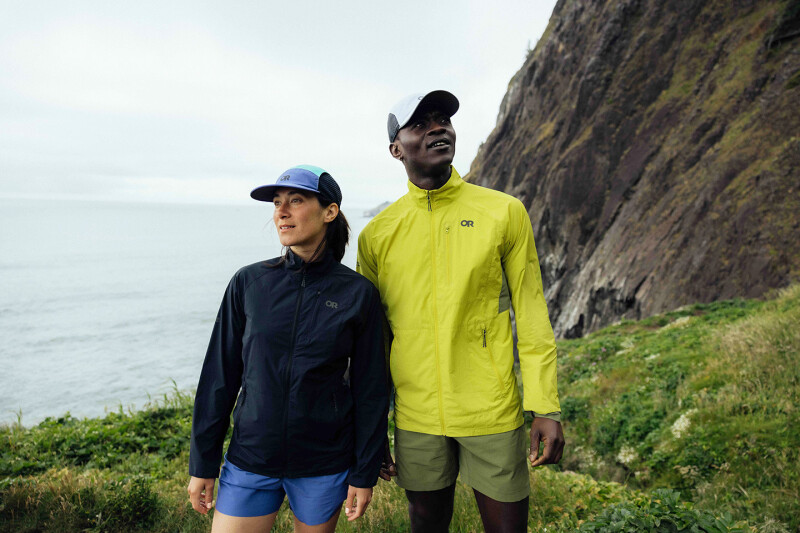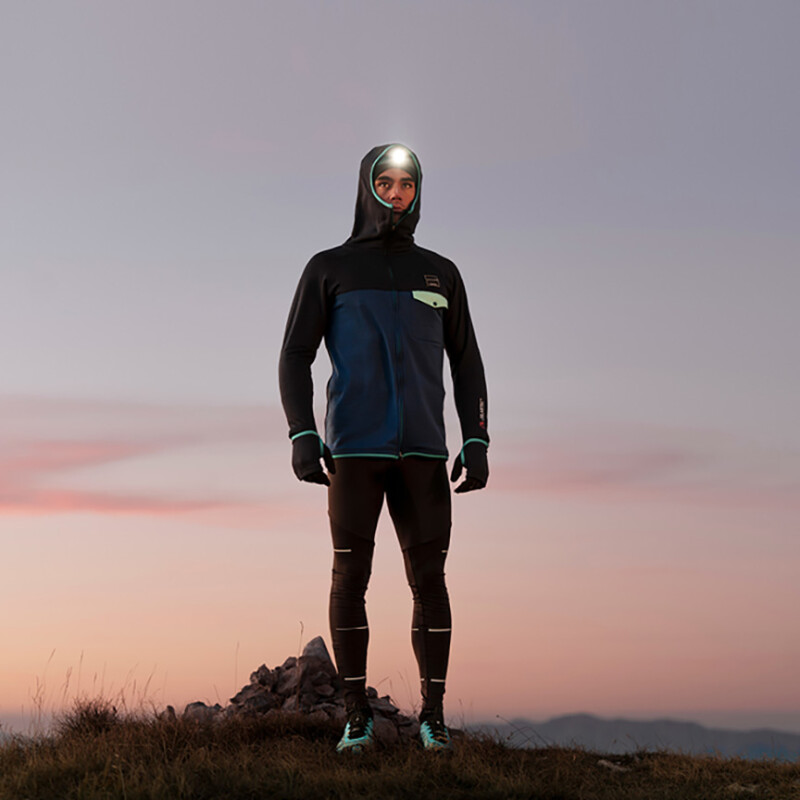As part of its commitment to expanding the reach of the running community through its #TRE22 Cares initiative, The Running Event has invited a number of advocacy groups to Austin to provide them with exposure to the wider running and outdoor specialty retail communities.
To get an idea of the goals of these advocacy groups and their message, Running Insight convened a virtual roundtable of five of the groups to provide insight into what to expect at #TRE22.
- Nancy Hobbs, Executive Director/Founder), American Trail Running Association (ATRA)
- Bailey Denmark, Director of Development, Big City Mountaineers (BCM)
- Tiffany Smith, CEO, Camber Outdoors
- Kathleen Baker, Managing Director, and Jess Rogers Bloom, President of the Board of Directors, Runners for Public Lands (RPL)
- Todd Crandell, Founder, Racing for Recovery
Let’s introduce everybody with an “elevator pitch” on the mission of your organization in 2022?
Kathleen Baker: Runners for Public Lands is a nonprofit organization that builds inclusive running communities dedicated to protecting the environment. Using the lens of environmental justice, we organize and mobilize runners for environmental stewardship, the protection of public lands and equitable access to nature.
Todd Crandell: Racing for Recovery is a nonprofit organization with the mission to prevent all forms of substance abuse by promoting a lifestyle of fitness and health for those affected by addiction.
Nancy Hobbs: Our mission remains the same year after year: To represent and promote trail running, mountain running and ultra trail running. We do have a theme each year and this year it is “Trail Running is for Every Body.”
Bailey Denmark: Big City Mountaineers provides transformative experiences through connections to nature that strengthen life skills and build community for youth from disinvested communities. Since our founding in 1990, over 11,000 youth who might not have otherwise had the opportunity to do so have spent over 45,000 nights under the stars.
Tiffany Smith: Camber Outdoors is a national nonprofit organization dedicated to removing barriers and providing access to women and other underrepresented groups by supporting workplaces as the vehicle of change to create diverse, equitable and inclusive workplaces across the outdoor industry. Camber provides a growing community of corporations, nonprofits and small businesses with programs and tools that accelerate workplace systems-change.
What is the most pressing issue facing your organization and members headed into 2023?
Denmark: BCM has been one of the most enduring presences when it comes to increasing diversity, access and representation in outdoor recreation spaces. Coming out of the COVID pandemic, we knew that our work was not just about this — it is also about supporting youth health. Our intention is to demonstrate that the time youth spend on the trail with BCM is a highly effective health intervention that leads to many benefits in other aspects of a young person’s life. To date, our work has not really been talked about in these terms. We intend to change that and to actually be the health support that youth need.
Smith: The Outdoor Recreation Economy (ORE) is experiencing a once-in-a-lifetime disruption and our Camber Survey System data tell us that corporations in the sector contain a workforce that is 81 percent white. This singular perspective has shaped workplace systems that feel exclusive, do not visibly deliver on the promise of equity and struggle to compete in a national landscape of workers who increasingly identify with currently underrepresented groups in the Outdoor Recreation Economy. The Outdoor Recreation Economy will require a shift of attracting and retaining diverse talent into nearly one million jobs if it is to match the breadth of consumers already here — that reflects the nearly 40 percent of consumers who identify as BIPOC. The ORE has an opportunity to focus not only on access to the outdoors, but also on access to the indoors of the outdoors.
Hobbs: There are several (in no particular order). First is User Experience because there are more trail users than ever before and that means potential conflicts. We support and embrace Trails are Common Ground. Then there is the Environment — climate change, carbon footprint, protecting and preserving open spaces. And finally there are Opportunities and welcoming environment by continuing to provide opportunities for youth to masters.
Crandell: The most pressing issue facing our organization is housing. Racing for Recovery donates more than $1 million to cover the cost to the souls we serve so they have a place to live while they are working on sustaining sobriety through our balanced, holistic lifestyle.
Jess Rogers Bloom: As runners, we don’t require a lot to pursue our sport. However, there are inherent barriers to entry for many, especially for those from marginalized communities and those with challenges related to accessing nature. Access often comes at a cost and at RPL we prioritize breaking down the barriers to ensure equitable access to nature and running for everyone. RPL’s mission is to build inclusive running communities dedicated to protecting the environment. In 2023 we will focus our efforts on equitable access to nature and its relation to environmental stewardship. We recognize that this isn’t just a social issue, but one that intersects directly with how people connect with and care for the natural world around them.
How have these challenges and opportunities changed over the past few years?
Denmark: COVID has really brought health needs into the forefront. It has always been the case that time spent on the trail is good for the body, mind and soul, but because the communities BCM works with have been the hardest hit by the pandemic, there’s never been a more appropriate or necessary time for BCM to step up and deliver on its mission.
Baker: RPL believes that diversity in perspective and representation is necessary to be successful in protecting our environment. As we work to make running and nature more accessible, we also recognize there are impacts that result from more runners using trails and accessing public lands. RPL sees this as an opportunity. The more runners we can empower to protect the land they use by getting involved in local level advocacy issues related to environmental justice, the bigger impact we can have as an organization.
Crandell: Prior to 2016, we were mainly an agency that was provided support. But since then we have turned into an innovative clinical treatment agency that focuses on the impact of trauma and how to cope effectively with it in order to live with inner peace.
Hobbs: There has been more awareness and more of an activation mindset over the past few years, especially as it relates to trails. People are realizing that we are fortunate to have trails to recreate upon and that if they are not protected and preserved, we won’t have any trails.
Smith: We’ve seen an uptick in women and BIPOC participation and increased diversity within the outdoor industry consumer base, which yields a great opportunity for retailers, vendors and race organizers to intentionally engage in DEI efforts within the workplace and spaces.
Through identifying these barriers to workforce participation and engagement, and lack of measures and tools for progress as common threads or points of opportunity, Camber strategically aligns our programming to meet these challenges. We are committed to tackling the issues before us; we are working on the opportunity presented by a growing outdoor industry.
How can our readers – the run and outdoor specialty retailers and brands – get involved in your organization?
Denmark: We want to encourage any company, brand organization or individual to turn their next outdoor adventure into an Adventure for Someone, where folks can add a layer of purpose and meaning to the activities they already love to do. As you run, walk, hike or do whatever you’re passionate about, you can raise funds to support our mission of access to the outdoors for youth from disinvested communities. This is a great way to build community within organizations and give people that little extra bit of motivation to do the thing they have always been thinking of doing.
Crandell: They can participate in our annual 5K race. They could donate running shoes, promote our unique livestream support group meeting or they could make a donation to support the organization online
Hobbs: A few great ways include being featured on our website. We have run spotlights on specialty in our Trail News section, we welcome articles at any time. We’d of course love it if retailers and vendors share information about ATRA — even a link on their website.
Bloom: As a growing organization, we seek members and partners that align with our mission, can help grow our platform and share our work with their communities. RPL relies on the sustainable funding received through our individual and event/club Membership Program. Recently, we also launched the RPL Brand Coalition that provides tailored opportunities for brands and retailers to connect and collaborate with us on varying levels. We take great pride in creating lasting partnerships and ensure alignment in priorities, goals and vision.
Smith: Become a part of the Camber Community. Camber Outdoors offers corporate, small business and nonprofits the opportunity to align with other brands within the ORE who are committed to make this an industry of choice for all. In addition, we offer eligible small business and nonprofits sponsored Camber partnerships. We invite Industry leaders and brands to become DEI Champions within their workplaces and provide resources to support Camber’s meaningful work impacting over 300 partner corporate, small business, and nonprofit partners and more than 13,000 individuals in the outdoor industry.
What is the benefit to brands and retailers?
Smith: Data reflects that by 2030 more than half of American workers will be BIPOC. The business case is clear: More diverse, equitable and inclusive organizations are better able to meet goals, win top talent and improve their customer orientation, employee satisfaction and decision-making. And all that leads to a virtuous cycle of increasing returns — for companies and nonprofits, for individuals and for communities. By committing to workplace diversity, equity and inclusion, running brands and retailers, and everyone really, can create a sense of belonging and community.
Baker: A relationship between RPL and a brand or retailer is mutually beneficial. If a brand is investing in our programs they become part of our larger goal to create inclusive running communities dedicated to protecting the environment. With the support of a coalition of brands and retailers, RPL can provide the framework needed to organize and amplify independent efforts and resources to create an impact greater than the sum of its parts.
Hobbs: The trailrunner.com website is full of information, from press releases to education to book reviews to runner features to tips and techniques. We also have a YouTube channel with more than 500 videos. We can also be a resource through our demographics gleaned from surveys and our team has extensive knowledge about the sport to share.
Crandell: I would like to develop partnerships with the running brands that I use (Saucony, Oakley, 2XU) and have that partnership be a give and take. For example, having them use my image and personal story along with the Racing for Recovery concept and success stories as a way for them to showcase their kind support and how it actually works and benefits the world.
Denmark: First and foremost, our hope is that a partnership with BCM helps brands and retailers advance their advocacy goals and gives them a meaningful way to do their part in increasing youth opportunity, as well as diversity and representation, in outdoor recreation spaces. Engaging in a giveback event or campaign with BCM has increased partners’ sales and bottom line; this is a proven effective marketing strategy. And BCM may be a wonderful point of connection for companies looking to break into the trail space.
What do you look to accomplish by your presence at The Running Event in Austin?
Denmark: We are hoping to make connections with existing and prior partners, as well as meet new partners and grow our circle of supporters. We are also hoping to make ourselves better known to brands who may not focus on outdoor recreation but who are interested.
Hobbs: Meeting attendees and sharing our passion for the sport through one-on-one interactions and also through Switchback in whatever way we can assist.
Smith: During our panel, “Breaking Down Barriers: DEI is the Race to Run!,” I hope to emphasize the importance of creating equitable, inclusive workplaces, especially in a multi-billion dollar industry with more than seven million jobs, and the steps and tools needed to make that happen. Additionally, I hope to connect with more people in this industry and share our mission and the work that Camber is doing.
Crandell: We hope people understand that addiction and self-destructive behaviors can be stopped and a beautiful life can ensue. Additionally, people need to understand that souls who are using drugs are not bad people, but rather hurting people who are making bad choices to deal with that hurt.
Rogers Bloom: The Running Event will be the first large outdoor industry event that Runners for Public Lands attends. We are excited to meet new outdoor industry reps, retailers and runners and to build lasting relationships that also help to further our mission. We are excited to share a film screening of “Everyone Run’s — The Story of Adapative Athlete Shaun Wahl,” and hope that this story inspires others to get involved in promoting more equitable access to nature and to the sport of running.
Finally, what are your organization’s plans for 2023?
Baker: 2023 will be a big year for Runners for Public Lands. We are seeking funding to grow several of our existing programs that directly address environmental justice issues and break down barriers to running and nature. We are also excited to launch the Everyone Runs Funds — our program that will provide funding and in-kind donations, such as coaching and gear, to help disadvantaged runners chase after their dream goals. We plan to launch this program in January and announce the first round of recipients in April. We also look forward to launching the Runners for Public Lands Ambassador Program that will organically grow additional RPL communities across new diverse communities in the U.S.
Crandell: We plan on increasing our app features (the Racing for Recovery lifestyle app launches in October) and also building our own recovery housing unit while continuing to serve those in need.
Hobbs: We have not yet announced our theme, but each of our themes over the past few years is not retired after the year in which it was featured. We build on our themes each year and look at the trail and mountain running climate to assess where some of our resources will be placed in the coming year.
Smith: Camber Outdoors is focused on collaboration, culture and community. We aspire to collaborate with brands and organizations aligned with inclusive culture — workplaces and spaces that promote a sense of community where everyone is included, valued and poised to be a part of the changing landscape of workplaces and spaces in the outdoor industry. In order to do that, Camber’s commitment remains steadfast by creating robust programming of equitable systems, inclusive culture and opportunities for leadership and employee peers, talent development and a full suite of resources specifically tailored to address the need for a more diverse workplaces in the outdoor industry.
Denmark: Along with the many things we’re doing to streamline and optimize our scaffolded proagram model, we are also going to pilot a program for BCM trip alumni who are interested in taking the next step with us and with their outdoor pursuits. Tentatively called the Leaders program, selected BCM youth alumni will receive training, professional development and support in outdoor leadership, serve as a junior instructor on BCM trips and access career exploration opportunities. The selective experience will come with a stipend as well. Additionally, we are overhauling how we work with volunteers to ensure that everyone who wants to volunteer with us has the opportunity to have a highly impactful and memorable experience.
________________
Get involved:
American Trail Running Association: trailrunner.com
Big City Mountaineers: www.bigcitymountaineers.org/afs
Camber Outdoors: camberoutdoors.org
Runners for Public Lands: [email protected]
Racing for Recovery: www.racingforrecovery.org/donate-now/
.
